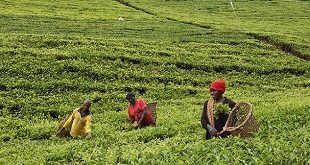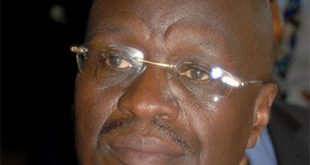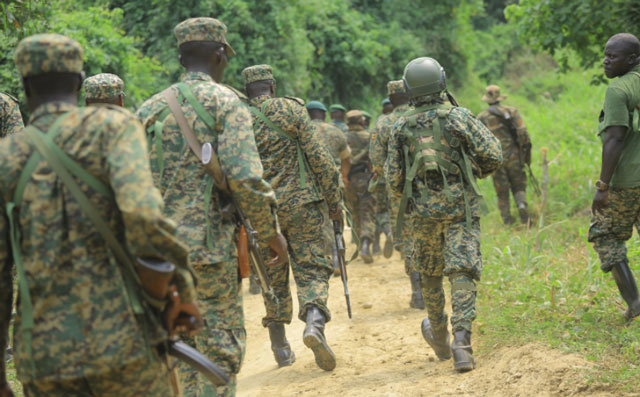
Investigation questions UPDF mission in DR Congo
COVER STORY | IAN KATUSIIME | First, place a joint force of the Uganda army and forces of the DR Congo government in rebel infested but mineral rich North Kivu region of that vast country. Not far off, set up a camp for a Ugandan construction company that also has interests in mining minerals.
Then, on a safe hill set up two camps; one for a French contingent of trainers for armed Special Forces because a major oil company, TotalEnergies, has interests in that region and another for the UN peace-keeping force, MONUSCO, which is a constant presence.
And finally, in close proximity, allow an armed militia group allegedly backed by Rwanda to spring up. What would be the aim of anyone who makes such an arrangement?
That is the question that a group of investigators have set out to answer, sort of, in a new report titled ‘Uganda’s Operation Shujaa in the DRC: Fighting the ADF or Securing Economic Interests?’
But for the general observer of the situation, there is an even bigger question: What is likely to happen next?
The authors of the analysis on Operation Shujaa are from an organisation called the Congo Research Group which describes itself as a New York-based independent non-profit research project and says it aims to “explain the complicated interplay among politics, violence, and political economy in the Congo”. And the issues it delves into are not hypothetical but are, as you read this, playing out in eastern DR Congo.
Just a few days ago, on June 13, the Congolese rebel group, M23 fought and defeated the DRC government forces and captured Bunagana, a small town on the DR Congo border with Uganda. The violence, according to the United Nations humanitarian agency OCHA has pushed over 25,000 people to flee their homes into Uganda.
This development is important because, regional authorities in eastern DRC have said Rwandan soldiers and artillery supported the M23 attack on Bunagana. The situation remains fluid and there were reports that by June 13, a joint force of the DRC army, FARDC and its Republican Guard, had recaptured the town. But if reports that Rwanda is backing the M23 are correct, that would place a potentially hostile force within the operation zone of the UPDF’s Operation Shujaa.
The report says Rwanda has expressed discomfort about the UPDF deployment in DR Congo.
“While both Uganda and Burundi have been allowed to conduct military operations in Congo, this is not the case for Rwanda,” the researchers point out, “As a result, Rwanda has become increasingly marginalised and has even perceived its neighbor’s interventions as a threat.
The report adds: “He (President Kagame) also said that his country was considering “various mechanisms” to resolve the security problems in eastern Congo, which was understood by some as a veiled threat of military intervention”.
Both the Ugandan government and private business stand to benefit from the military operations
It was also significant that on June 16, President Yoweri Museveni was at Muhoti Barracks in neighbouring Kabarole district to interact with the UPDF Mountain Division Specialised Force. This is the force involved in Operation Shujaa currently in its seventh month in the eastern part of DR Congo.
Museveni, according to an official statement was meeting the forces to thank them for a job well-done to hunt down militants of the Allied Democratic Forces (ADF) who have terrorised Uganda for years.
Museveni’s visit was misunderstood and some newspapers carried headlines like `Uganda halts Congo military operations’. This pushed the UPDF Spokesperson; Brig. Gen. Felix Kukayigye, on June 17 to correct the record.
“This is to clarify that the operation in DRC, codenamed Operation Shuja has not been halted,” Kulayigye said in a written statement.
Operation Shujaa spotlighted
But the confusion around Museveni’s visit could be an indication of the apprehension many observers have whenever Ugandan and Rwanda forces and the DR Congo are mentioned in the same situation.
Museveni’s visit also came at the right time because Operation Shujaa has been under immense scrutiny for months. From the Ugandan public, in the region and the wider international community, Operation Shujaa has been under the spotlight for its aim, timeline and funding.
Now, Congo Research Group is joining the inquisition as it lays into Operation Shujaa and casts the seven month operation as one likely chasing monetary profit rather than peace and security in the unpredictable Great Lakes region.
“Once again, the eastern Democratic Republic of Congo is in turmoil,” says the report.
It points out that the latest M23 attacks in fact began in November 2021. The timing of the attack is important because the UPDF officially initiated attacks against the ADF on November 30, 2021. And the M23 attacks escalated in May 2022 when the group captured Rumangabo, the largest army camp in North Kivu. This is the same area of Operation Shujaa. The M23 reported then moved south to Goma, nearer the Rwanda border. It is from here that they apparently moved north to capture Bunagana on the Uganda border.
The Congo Research Group report notes features of Operation Shujaa that informed observers are familiar with.
“According to the Ugandan government, these operations were launched in order to dismantle the Allied Democratic Forces (ADF), a reclusive and extremely brutal Islamist armed group. But was that the only reason?” the authors ask.
“We focus on understanding the range of other economic, geopolitical, and security motives involved. In particular, the paper will argue how the military operation likely also aimed to protect Uganda’s oil deposits and infrastructure around Lake Albert; and to build roads to expand the market for Ugandan goods.
“Both the Ugandan government and private business stand to benefit from the military operations. They allow Dott Services, a Ugandan construction company, and TotalEnergies; a French oil company, to further their interests,” it adds.
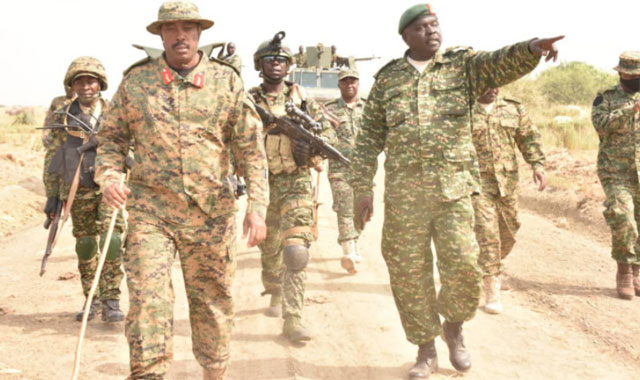
It also echoes what has been reported in Ugandan media- an inability to gauge the progress or more pointedly, the success of the UPDF in their pursuit of the elusive anti-Museveni ADF rebels.
“Little is known about the military progress of the operation. Although General Muhoozi Kainerugaba, Museveni’s son and commander of the Ugandan land forces, communicates often and enthusiastically about the operation on social media, neither army has provided much concrete information,” it points out.
Much of what is reported is Maj. Gen. Kayanja Muhanga, Operation Shujaa commander, inspecting troops, touring areas where the ADF has been repelled or overseeing works where the UPDF has undertaken construction of roads under a joint agreement with DRC.
“It does not appear that the ADF has been structurally weakened by the operation,” it says. It cites an anonymous diplomat who it says follows the operations closely comparing Operation Shujaa strategy to “trying to kill a mosquito with a hammer”. Another anonymous diplomat is said to have described the operation as “a lot of dust and noise.”
The researchers join a growing chorus of critics of Uganda’s third military foray into the Congo at a pivotal time for the region and Uganda’s vast neighbour to the west.
DRC has just joined the East African Community (EAC) as its seventh member and Uganda and Rwanda are going through a détente after years of heightened tensions that resulted into Rwanda closing its border post to Uganda for three years. The latest upsurge of violence is between FARDC, DRC’s army and RDF, Rwanda’s troops, who are currently in open hostilities.
Dott Services
Uganda’s centrality to DRC is something the report centres on. Last year, the two countries launched 223km road works to promote trade. Congo Research Group, which describes itself as dedicated to understanding the violence that affects millions of Congolese with, says the road works are linked to Operation Shujaa in various ways.
It points out that there has always been important cross-border trade between Uganda and Congo, some of it formal but a significant portion informal. In 2019, it says, formal exports from Uganda to its neighbor were worth 156 million USD but informal exports were even greater, worth 330 million USD. It says the majority were industrial goods.
“That makes Congo the largest export market for Ugandan informal exports, making up 62 percent of all informal exports, “ it says, “Mpondwe border station, the starting point of the new roads, is a particularly important trading point.”
It stresses that Congo has a much weaker manufacturing sector and imports many agricultural goods from Uganda. “All of this is politically important for the Museveni regime: Uganda’s population is growing rapidly and the regime faces increased dissent, making economic growth important to shore up Muesveni’s legitimacy.”
During the reading of Uganda’s budget on June 14, Matia Kasaija, Minister of Finance, revealed that Shs3.9 trillion ($US1bn) had been allocated for “improvement of security and security infrastructure.”
Kasaija did not specify how much would go into Operation Shujaa but the colossal amount of money he dropped during his speech encompasses the involvement of the UPDF in the road construction business in Congo and means that Uganda is potentially in for the long haul. This can only push the Ugandan government further into the spotlight on the true nature of the mission.
The researchers argue that for the road construction and economic integration to succeed, military protection is needed. “Even the timeline of the operations and road construction have been connected: the UPDF officially initiated attacks against the ADF on November 30, 2021; road construction started just a few days later, on December 3, 2021, with an official ceremony involving the two respective ministers, and during which the Congolese government officially “handed over crucial sites” over to the company.”
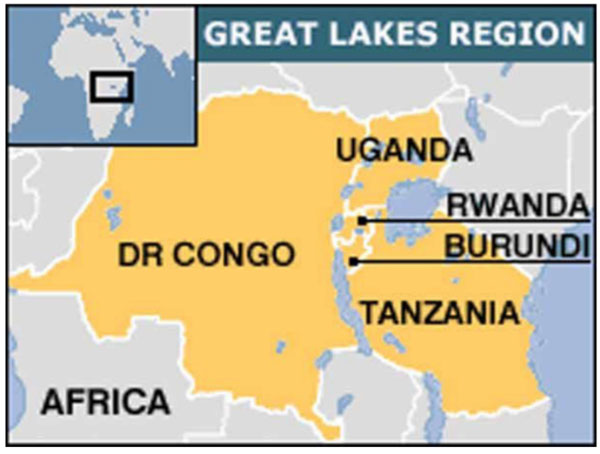
The company in question is Dott Services, which the report cites prominently as the second link between Operation Shujaa and the road works. It says Dott Services is “an illustration of the importance of political connections in Uganda’s business sector in general.” This is in addition to how the company reportedly pushed for the road project for years.
The report says the priority roads are estimated to cost 335 million USD, with both countries contributing 20 percent to these costs. The remaining 60 percent of the total cost––201 million USD––would be paid by Dott Services. But while in October 2020, the Ugandan government approved 66 million USD for the project, the DR Congo government is yet to officially announce any contribution.
Instead, as further illustration of the power of Dott Services, the report notes how two Ugandan online journalists who had written about Dott Services’ Congo road contract were arrested and detained for three weeks in May-June 2021.
“Very little criticism of the firm has emerged in the Uganda press,” the report says, “The company is seen as an illustration of the importance of political connections in Uganda’s business sector in general.⁸ Dott Services is seen as particularly connected: some reports situate the company close to the first family.”
Mineral deals
The report cites how in December 2020, the firm signed a mining contract with Congolese state-owned mining company Sakima (Société Aurifère du Kivu et du Maniema), acquiring important mining sites in Maniema province. The province is rich in tin, tantalum, tungsten, as well as gold.
Interestingly, the report says, in late June 2021, a series of mining contracts were also signed between Rwanda and Congo, including one that stipulated that gold produced by Sakima will be refined in Rwanda by the relatively unknown local company Dither Ltd. Moreover, according to one source, the shipments of gold would be secured by the armies of both Rwanda and DR Congo.
The exploitation of Congo’s minerals for which Uganda has been penalised before, is mentioned again. The report says after the deal with the state-owned Sakima company was inked, a joint venture Punia Kasese Mining (PKM), was formed in which Dott Services owns 70 percent of the shares.
“The remaining 30 percent are owned by Sakima. The contract also stipulates the creation of a processing factory for minerals and precious metals permission for the joint venture to launch infrastructure projects in the region, as well as the rehabilitation and development of hydroelectric assets.”
Congo Research Group says the joint venture is already mired in suspicion. “Given the sensitivity of involving neighboring countries in the exploitation of Congolese natural resources, this contract and the information about it has been tightly controlled by the presidency, which has fostered suspicion. Some civil society activists doubt whether the joint venture will really start, or fear Congolese will be on the losing end of the projects.”
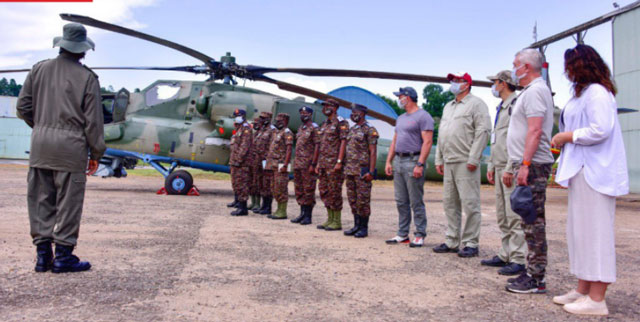
Uganda’s treasured oil and the East Africa Crude Oil Pipeline (EACOP) whose agreements Uganda signed last year come up. The researchers argue that “providing security for the oil fields constitutes an important reason for the ongoing military operation. The multi-billion-dollar investments are a cornerstone of Museveni’s economic and political strategy.” They base their argument on the major oil deposits on both the Congolese and Ugandan shores of Lake Albert.
Uganda is heavily invested in its oil pipeline with the French company, TotalEnergies, as a major partner and due to this, security is an equally important investment for the project which kicked off in 2006 when Uganda discovered commercially viable oil in the Lake Albert region.
“Both the Ugandan government and TotalEnergies want to avoid a scenario like that in Cabo Delgado, Mozambique, where an insurgency put TotalEnergies’ multi-billion-dollar investment on hold, “ the report notes. It further points out, “Investors are particularly nervous about the prospect of attacks on oil infrastructure; there is a multi-billion investment on the line (…) A pipeline attack would be catastrophic, as would be force majeure (unforeseeable circumstances that prevent someone from fulfilling a contract) on wells.” For this reason, the oil-rich area has become increasingly militarised, including by the French government.”
The insecurity in Cabo Delgado province has cost the Mozambican government and TotalEnergies a lot. The Rwandan government deployed its troops to the province in 2021 at the request of Mozambique and at one point Uganda mulled a similar deployment when it dispatched Gen. Ivan Koreta, last year to explore the possibility of a Ugandan troop deployment.
In April, President Museveni hinted about a possible deployment to Mozambique as “only if necessary” while hosting his Mozambican counterpart Filipe Nyusi on a state visit. Museveni also used the opportunity to reveal that 4,000 UPDF troops are involved in Operation Shujaa.
Due to similar concerns in Uganda’s oil region, the Mountain Division Specialised Force that Museveni lauded at Muhoti Barracks has been undergoing training by French troops in mountain warfare since 2016. In 2019, the Mountain Division was officially inaugurated. The training has also enhanced French Uganda military collaboration.
“The protection of oil was explicitly acknowledged as a central reason for its existence: in 2018, the Chief of Defense Forces General David Muhoozi said that the Albertine region “needs serious protection for the young oil industry to thrive,” the report states and adds, “This might explain why Operation Shujaa is expanding its operations into Ituri province and has been engaging with armed groups other than the ADF.”
The report underscores the role of France in the military operations involving Uganda and Congo saying that Congolese troops in Operation Shujaa have also received training from their French counterparts. “A first FARDC battalion was trained in 2021 by the French (in Gabon) in jungle combat and a second battalion is currently undergoing training.”
It illuminates France’s overriding economic interests in Uganda saying French diplomats have demonstrated “strong emphasis on economic interests with less attention paid to democracy and governance.”
Besides the military operation creating a potentially explosive region with Rwanda and competition for access to minerals, the researchers warn the UPDF on the vast terrain of the Congo, and stress that for a long time, the ADF has proven “resilient, mobile and adaptive.” As Brig. Gen. Kulayigye concluded in his statement clarifying the presence of Operation Shujaa in DR Congo; Aluta Continua.
 The Independent Uganda: You get the Truth we Pay the Price
The Independent Uganda: You get the Truth we Pay the Price


